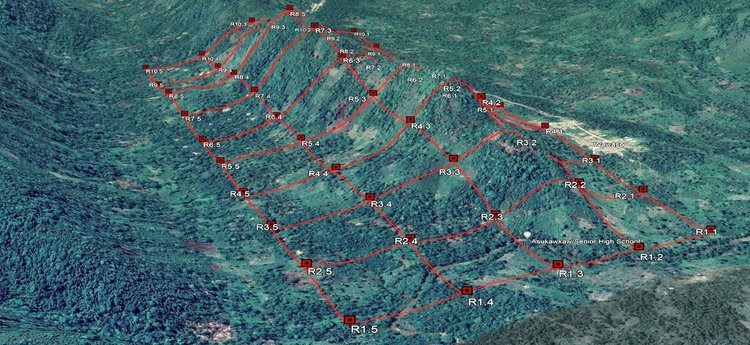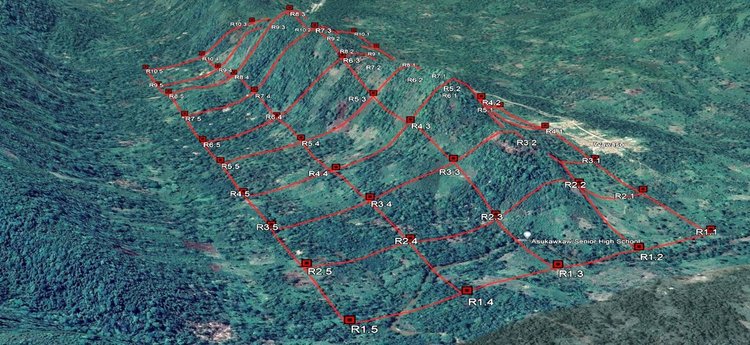Fleet Space Announces First ExoSphere Deployment In Africa

Fleet Space Announces First ExoSphere Deployment In Africa. Fleet Space is delighted to announce the first deployment of its ExoSphere satellite-based mineral exploration system in Africa, in a new partnership with Resonance Frequency Exploration Group (RFEG), based in the USA with operations in Accra, Ghana. Under a licensing and technology cooperation agreement finalised in December 2022, Fleet Space will supply its Geode portable sensors, which use Ambient Noise Tomography (ANT) to collect subsurface data. This data is then beamed to the ExoSphere constellation of low earth orbit (LEO) satellites and then relayed to computers that use intelligent data processing to generate detailed 3D subsurface maps. Unlike traditional prospecting methods, which can take months or years to complete, the whole process takes only days or weeks.

“There is an urgent, global need to discover new sources of critical minerals to support the transition to clean energy and net-zero. Building on our existing successful partnerships in Australia and North America, we’re delighted that our ExoSphere system is now being deployed on mineral exploration projects in Africa for the first time. Through this pioneering licensing and technology cooperation agreement, ExoSphere will give our partners at RFEG access to our Ambient Noise Tomography (ANT) and real-time processing capabilities to complement their own proprietary systems. Together, we can greatly speed up the exploration process for a range of vital minerals, while also massively reducing its environmental impact – a win-win for Ghana and the wider international response to climate change.” Flavia Tata Nardini, CEO and Co-Founder, Fleet Space Technologies.
ExoSphere brings a powerful new dimension to the ongoing Mineral Resource Estimate projects RFEG is conducting, in particular in the Oti Region of Ghana. Under the auspices of the Ghana Geological Survey Authority (GGSA), with implementation by RFEG’s team, ExoSphere will complement RFEG’s own XPLR remote-sensing mapping-analysis technology. This is achieved by cross-referencing the data from both sources, thereby significantly increasing the likelihood of finding new mineral deposits more quickly and with much greater accuracy. ExoSphere’s Geodes are light enough to be carried by one team member, making them ideal for use in challenging and inaccessible terrain. They are also entirely non-invasive, eliminating the need for explosives or vibrating trucks to collect subsurface seismic data. This substantially reduces costs, logistical issues and environmental disturbance; the accuracy of the combined data collection and analysis by Exosphere and RFEG’s systems also means, for mining operators, that drilling can be streamlined to areas where considerable deposits are known to exist.
RFEG selected Fleet Space as its technical partner after a worldwide search. The company is seeking to help current and prospective clients in the USA, Africa, Central and South America take a more tech-forward, eco-conscious approach to better ascertain site viability and increase operating efficiencies. In particular, it is focusing on using satellite-based image processing technologies analysed by proprietary algorithms to determine a prospective site’s viability before embarking on traditional geophysical work. RFEG founder Schad Brannon said: “The addition of ExoSphere 3D rendering of subsurface topography by Fleet Space propels the XPLR technology product suite and technology-stack to the next level by creating the most comprehensive satellite-based remote sensing survey product available within the mineral exploration marketplace to date”
Fleet Space founder Flavia Tata Nardini says: “We’re incredibly excited to see ExoSphere being deployed in Africa, and to be working in partnership with RFEG. Our two organisations have much in common: we’re both looking to make mineral exploration faster and more efficient through technology; we’re explorers and pioneers developing that technology ourselves; and we’re absolutely committed to reducing the environmental impact of these activities, which are fundamental to economic development and climate action.”




